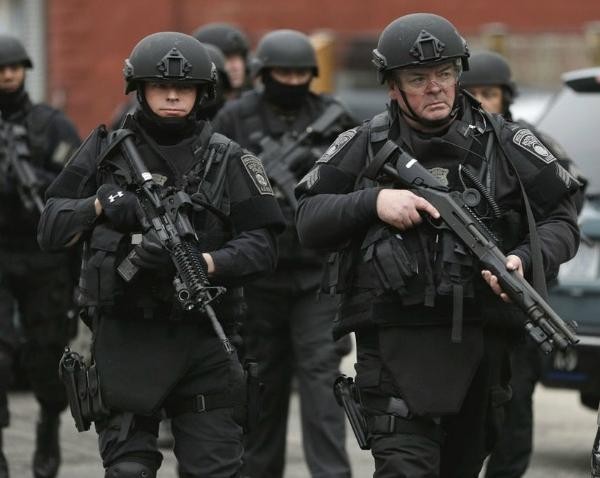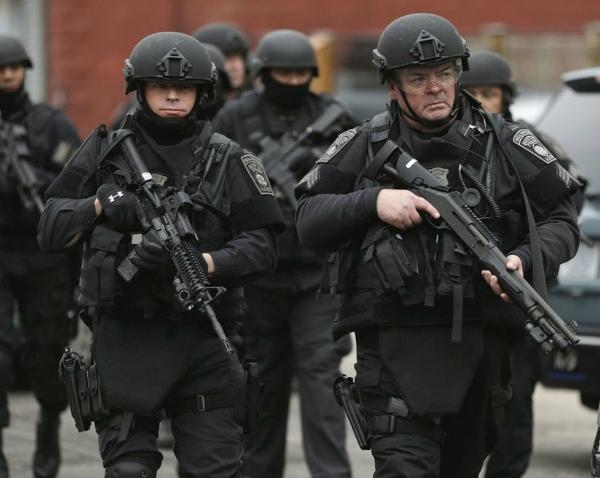
The topic of Police Brutality, Black Lives Matter and the controversies surrounding these subjects were once again headline news after the deaths of Alton Sterling and Philando Castile, and the tragic shooting and murder of five Dallas police officers during a string of protests. For the most part, the response was steadily of mourning for the loss of these lives, calling it a tragedy, while a minority voiced their support for the killing of the officers, as shown in a viral video of protesters mocking police officers (1) and found support in people like Kalyn Chapman James, who was crowned the first black Miss Alabama in 1993, who felt like Micah Johnson was a martyr (2), saying “I don’t feel sad for the officers that lost their lives, and I know that’s not really my heart,” she said. She continued, “I value human life and I want to feel sad for them, but I can’t help but feeling like the shooter was a martyr.” The conversation about race relations and Police Brutality is nearing the summit.
Many are stuck finding ways to crack into the police brutality and race relation problem in the United States, with some believing that cameras on police officers can be a way to know when an officer is out of place and act accordingly. According to the CATO institute’s National Police Misconduct Reporting Project (3), “By recording police-citizen encounters, police supervisors, judges, reporters, and others can get objective evidence of what happened instead of self-serving hearsay.” Others believe that there is more to the problem than that, and want an end to all police brutality, and an end to all of the racism. According to a Mic article (4), it stated that “Law enforcement disproportionately impacts people of color. It funnels them into jails and prisons at staggering rates,” and that “One of the primary causes is policy that — whether intentionally or unintentionally — targets blacks and Latinos through drug and search laws, for example.” The vendetta then is that although looking to end racial prejudice is the end goal to ending alarming rates of police brutality, focusing on expanding methods of accountability such as body cameras on officers allows for a stronger immediate impact.
According to a study done by the Police Executive Research Forum (5) (PERF), the results indicated that 75 percent of active law enforcement members did not use body-worn cameras. Current officers are not required by law to wear these cameras, but taking steps to make it a required part of being in the line of duty could help to enforce a sense of accountability within the environment between law enforcer and possible law breaker. According to a study (6) done at the Rialto Police Department in Rialto, California in 2014, with some officers required to wear a body camera, complaints from citizens against law enforcement dropped by 88 percent, and the use of force rate dropped by 60 percent. These types of results have the possibility to be seen in other parts of the country, if the body cameras that are used by some officers and required of some counties were of required use in all police departments in the United States.
This move would be a temporary solution that would help grow into a more permanent one, being that the claim that some attacks are driven by the race component is true in many police brutality cases. However, there are cases in which the shooting of a criminal or an outlaw was justified, and having the required use of body cameras allows for the right judgement call to be made when it comes to whether or not it was too strong of an attack or a tragic killing that could have been avoided, like in the cases of Alton Sterling and Philando Castile. Requiring for all police stations and all active law enforcement officers to wear body cameras in order to increase accountability is a great first step, but along with changes to the law, we also have to focus on creating a culture of life where we view people as more than the color of their skin, but as the great Martin Luther King Jr. once stated, to care more about the content of their character. When we do so, we can expect that people will start treating each other with more respect, in all walks of life.
Take Action: Sign a petition to require body cameras on police officers here.
[1] Hudson, J. (2016, July 08). VIDEO: ‘Drunk’ Protesters Loot Convenience Store, ‘Taunt’ Officers After Dallas Police Massacre – Breitbart. Retrieved July 13, 2016, from http://www.breitbart.com/big-government/2016/07/08/video-drunk-protesters-loot-convenience-store-taunt-officers-dallas-police-massacre/
[2]Gajanan, M. (2016, July 12). Ex-Miss Alabama Suspended After Calling Dallas Shooter a ‘Martyr’ Retrieved July 13, 2016, from http://time.com/4403274/miss-alabama-kalyn-chapman-james-dallas-shooter-martyr/
[3]Police Body Cameras. (2015, June 22). Retrieved July 13, 2016, from http://www.policemisconduct.net/explainers/police-body-cameras/
[4]Rice, Z. C. (2015, July 01). 15 Things Your City Can Do Right Now to End Police Brutality. Retrieved July 13, 2016, from https://mic.com/articles/121572/15-things-your-city-can-do-right-now-to-end-police-brutality#.dLVK4wyxl
[5]Research on Body-Worn Cameras and Law Enforcement. (2016, June 3). Retrieved July 13, 2016, from http://www.nij.gov/topics/law-enforcement/technology/pages/body-worn-cameras.aspx
[6]7 findings from first-ever study on body cameras. (2015, February 2). Retrieved July 13, 2016, from https://www.policeone.com/use-of-force/articles/8218374-7-findings-from-first-ever-study-on-body-cameras/




